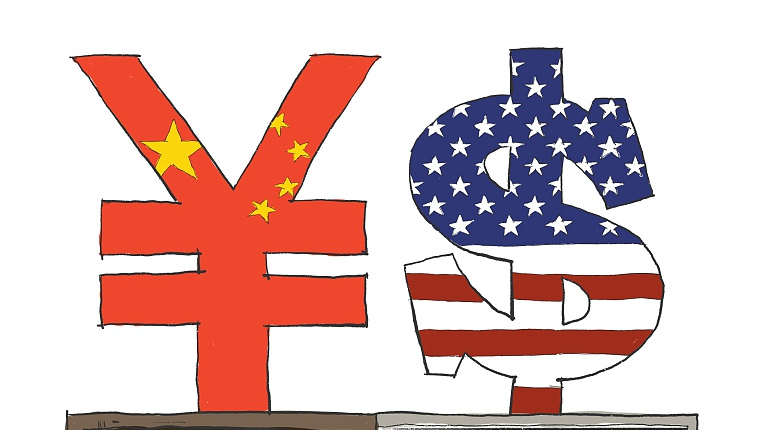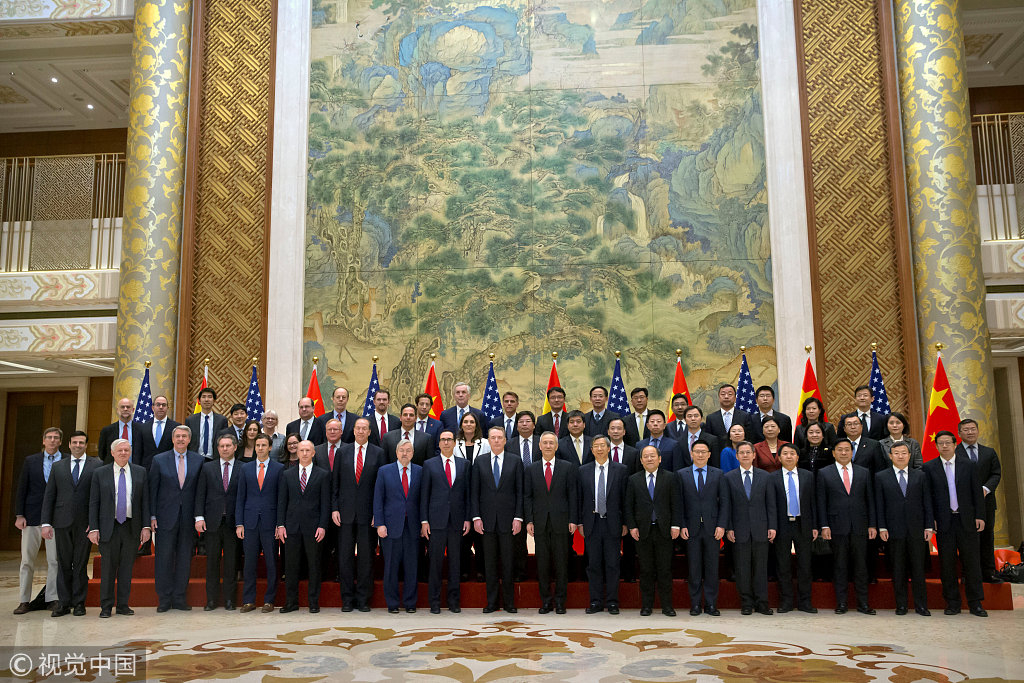
Opinion
10:31, 05-Mar-2019
A trade war should be a chance for trade expansion
Updated
14:52, 05-Mar-2019
Kong Qingjiang

Editor's note: Kong Qingjiang is dean of the School of International Law at the China University of Political Science and Law. The article reflects the author's opinion, and not necessarily the views of CGTN.
China will continue to push forward trade negotiations with the U.S., said Chinese Premier Li Keqiang at the opening meeting of the annual session of the National People's Congress on Tuesday. The message added a sense of relief to traders and watchers of China-U.S. trade relations.
This comes after U.S. President Donald Trump said last month that he expected to sign a deal with President Xi Jinping to end the trade war. Trump, in a tweet on February 24, said he decided to delay the March 1 deadline to increase tariffs on 200 billion U.S. dollars of Chinese imports from 10 percent to 25 percent, citing "substantial progress" in China-U.S. trade talks.
There are reports that the two sides are planning for a summit at the end of March at Mar-a-Lago. According to CNBC, if a deal is reached, the U.S. could roll back tariffs on at least 200 billion U.S. dollars of Chinese goods while China could remove or cut industry-specific levies.
Nevertheless, hurdles remain. To wrap it up, both parties need to make compromises.

VCG Photo
VCG Photo
On the U.S. side, the vocal advocates of pressure on China's concessions have to realize that some of the structural changes are within the province of sovereignty and are a vital interest of China.
As is often heard, no one should expect China to swallow the bitter fruit of undermining its own development and vital interests. Therefore, a softened approach to such structural changes is more advisable.
For China, it is always meaningful to remember that the country is in need of further reform to sustain its economic development or at least to pull the economy out of the current stagnation, and that such reform often needs international leverage due to the diversified constituencies in the domestic economic and political realm.
For both parties, they should be reminded that while the trade war has a devastating impact on millions of ordinary Chinese and American people, as well as the livelihood of millions of people in other countries involved in the stream of commerce, and constitutes a threat to world peace.
Given its unprecedentedly huge impact, the trade war should be deemed to be a real war waged in the name of defending fair trade.
On the ground of maintaining peace and security of the world, any country affected may bring the trade war to a trade deal between the world's two largest economies is in the interest of the global trade community and will pave the way for a needed reform of the World Trade Organization. As the two major powers, they have the joint responsibility not to destabilize world trade order.
Besides, technical-turned-political issues also need to be addressed.

A group photo of members of the U.S. and Chinese trade negotiation delegations at Diaoyutai State Guesthouse in Beijing, China, February 15, 2019. /VCG Photo
A group photo of members of the U.S. and Chinese trade negotiation delegations at Diaoyutai State Guesthouse in Beijing, China, February 15, 2019. /VCG Photo
For example, it poses a legal challenge of whether this final deal, which will have far-reaching implications for the bilateral relations and for the world trade order, will have to be approved by the U.S. Congress and China's National People's Congress (NPC) or its Standing Committee.
According to the U.S. constitution, international treaties reached by the President with foreign governments will be subject to the Congress for approval-unless they are characterized as executive agreements. Similarly, the Chinese constitution requires “treaties and important international agreements” to be approved by the NPC Standing Committee.
Although the U.S. Trade Representative intended to downplay the deal as a Memorandum of Understanding, President Trump has showed his strong preference for a denomination of “trade agreement”.
Therefore, in the Chinese context, the issue is not expected to become an obstacle and it remains unknown whether the prospective trade agreement will sustain the scrutiny of the opposition Democrats in the Congress.
In this context, the well-expected trade agreement is in a way an acid test for the American political leaders: They are being tested for their vision of the U.S.-China relation, the most important one of this kind in the world, as well as of global trade order.
They will also be tested for their political will to enhance the benefits of their people, and to render public goods for the global trading community. It is the right time to turn the trade war into an opportunity for trade expansion.
(If you want to contribute and have a specific expertise, please contact us at opinions@cgtn.com.)

SITEMAP
Copyright © 2018 CGTN. Beijing ICP prepared NO.16065310-3
Copyright © 2018 CGTN. Beijing ICP prepared NO.16065310-3